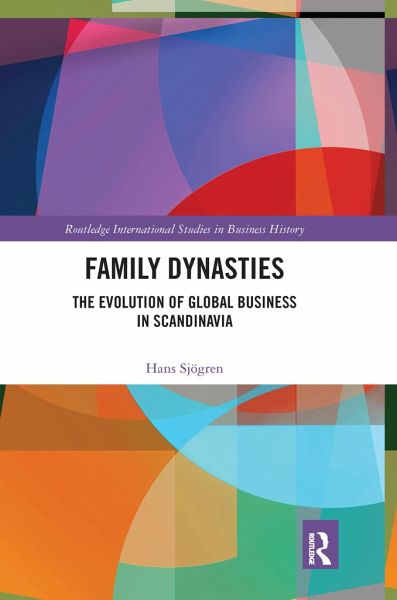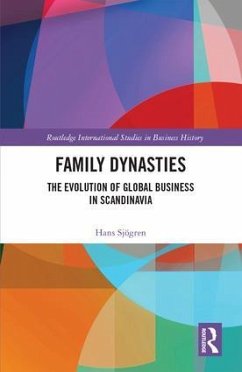
Family Dynasties
The Evolution of Global Business in Scandinavia
Versandkostenfrei!
Versandfertig in 1-2 Wochen
54,99 €
inkl. MwSt.
Weitere Ausgaben:

PAYBACK Punkte
27 °P sammeln!
A remarkable fifteen Nordic family businesses are among the 500 biggest companies in the world and the Nordic countries have more dynasties than most others per capita and in GDP terms. The willingness, often reluctant, of both the political system and labour movement to accept asset accumulation has helped these Nordic businesses survive. The top 1% of Swedes own close to 25% of the country's wealth, as opposed to 16.5% of Spaniards, where dynasties are also abundant. The pattern has held a firm grip on the Nordic countries since the Industrial Revolution and emergence of free enterprise. The...
A remarkable fifteen Nordic family businesses are among the 500 biggest companies in the world and the Nordic countries have more dynasties than most others per capita and in GDP terms. The willingness, often reluctant, of both the political system and labour movement to accept asset accumulation has helped these Nordic businesses survive. The top 1% of Swedes own close to 25% of the country's wealth, as opposed to 16.5% of Spaniards, where dynasties are also abundant. The pattern has held a firm grip on the Nordic countries since the Industrial Revolution and emergence of free enterprise. The trend is particularly pronounced in comparison with the Anglo-Saxon countries - somewhat less so relative to places like Italy, Japan, Germany and South-Asian countries. This book describes the factors and dynamics behind the ability of Nordic businesses to grow and thrive from one generation to the next in the process of becoming dynasties. Far from being commercial enterprises, they are a venue for power, philanthropy, passion, conflict, freedom and captivity. Like many other dynasties, the Nordic ones are a witch's brew of Machiavelli's Prince, Marx's belief in the potential of the meritocracy and Smith's baker who works to sustain his family. Topped by a spoonful of Weber's Protestant Ethic. This book will be key readings for students and scholars of entrepreneurship, corporate governance, business history, Scandinavian history, family business and enterprises and the related disciplines.














